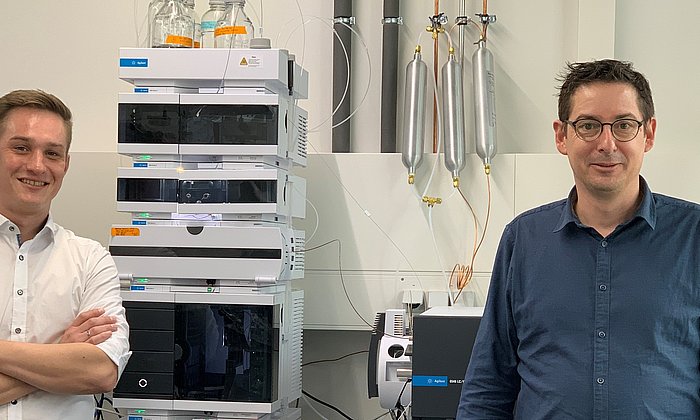Research for sustainable chemistry
TUM and WACKER found Institute for Industrial Biotechnology

WACKER will provide the institute with more than six million euros in research funds over the contractually agreed term of six years. The new institute will commence its work in the 2022/2023 winter semester.
Industrial biotechnology is concerned, among other things, with the biotechnological production of specialty chemicals and active ingredients using optimized enzymes, cells, and microorganisms. Key feedstocks are renewable raw materials. Industrial biotechnology finds application in diverse branches of industry, such as food and health, as well as cosmetics and textiles. Examples here are pharmaceutical active ingredients and dietary supplements based on modified carbohydrates or proteins.
“We will be linking the disciplines”
“Industrial biotechnology is a pioneering technology with huge potential for the future,” points out Christian Hartel, President and CEO of Wacker Chemie AG. “It can replace processes based on fossil raw materials, and reduce energy and raw materials consumption. That lowers production costs, conserves resources and protects the environment.” The Institute for Industrial Biotechnology will do invaluable work in the development and implementation of sustainable biotechnological processes for all kinds of applications, he stresses.
“Industrial biotechnology is one of the keys that will help us achieve the goal of a sustainable economic system,” says Thomas F. Hofmann, President of TUM. “We will be linking the disciplines with each other, ranging from research at the molecular level to chemical engineering and process engineering. Through closely collaborating with WACKER, we will accelerate the effective transfer of the knowledge gained thereby to industrial practice..”
TUM and WACKER have been collaborating in different areas for many years, actively driving knowledge transfer between scientific research and industry. “With the foundation of the Institute for Industrial Biotechnology, we are now jointly focusing on a particularly promising field,” says WACKER President and CEO Hartel.

Nucleic acids for cancer treatment
A key focus of the institute’s research in the field of biotechnological production systems will be the production of nucleic acids, which are used, among other things, to treat illnesses such as cancer. Further research areas will target the production of low-molecular compounds and the development of new process concepts. The new institute will collaborate closely with WACKER’s development department. Symposiums related to the research work will be held at regular intervals.
The TUM WACKER Institute for Industrial Biotechnology will become part of the Munich Institute of Integrated Materials, Energy and Process Engineering, an integrative research center that brings together all TUM’s strengths at the interfaces of new materials, innovative process and production technologies and energy engineering. The TUM WACKER Institute will be headed by Prof. Sonja Berensmeier, a high-profile expert in the field of new biofunctional materials and process development for the separation of biotechologically produced high- and low-molecular biomolecules. Over the next six years, 20 doctoral candidates will be doing research work at the institute.
- Munich Institute of Integrated Materials, Energy and Process Engineering
- WACKER has been conducting basic biotechnological research since the 1980s. The chemical Group launched its first bioengineered product onto the market in the 1990s. Nowadays, its biotechnology business is bundled together in the WACKER BIOSOLUTIONS division.



